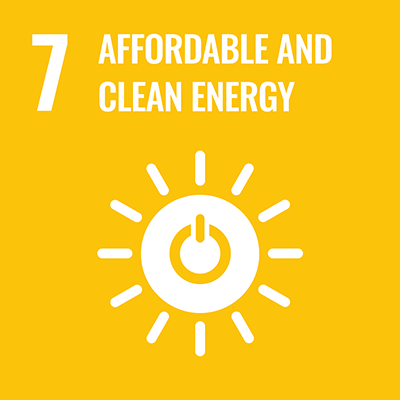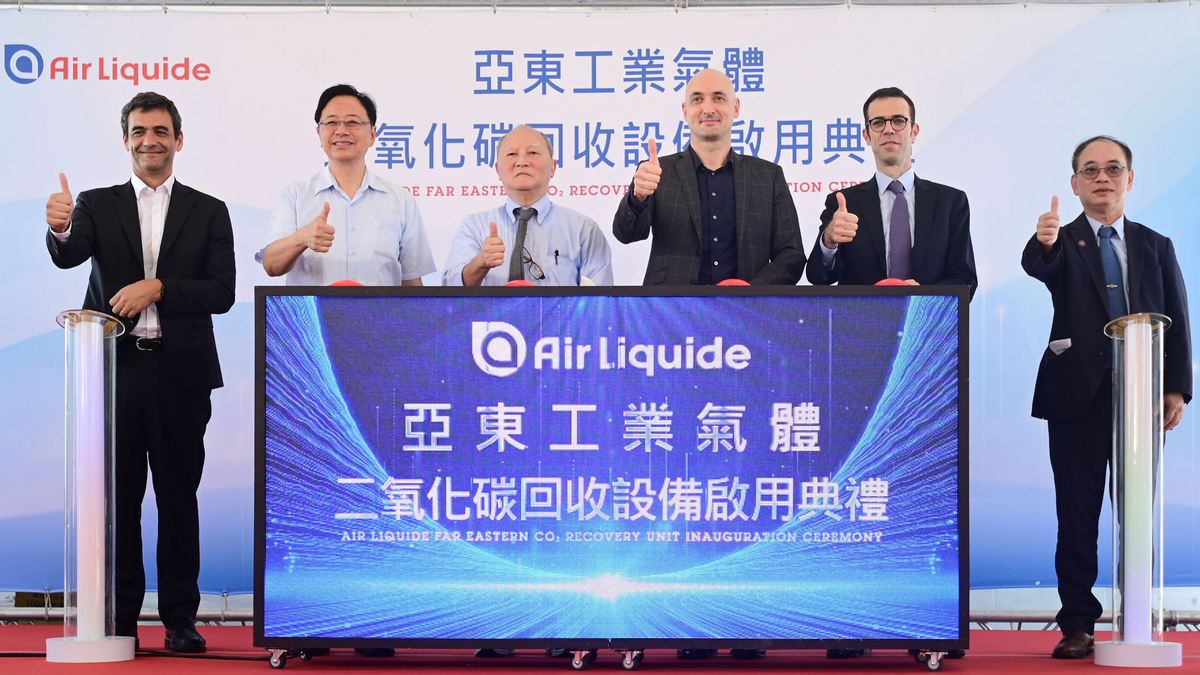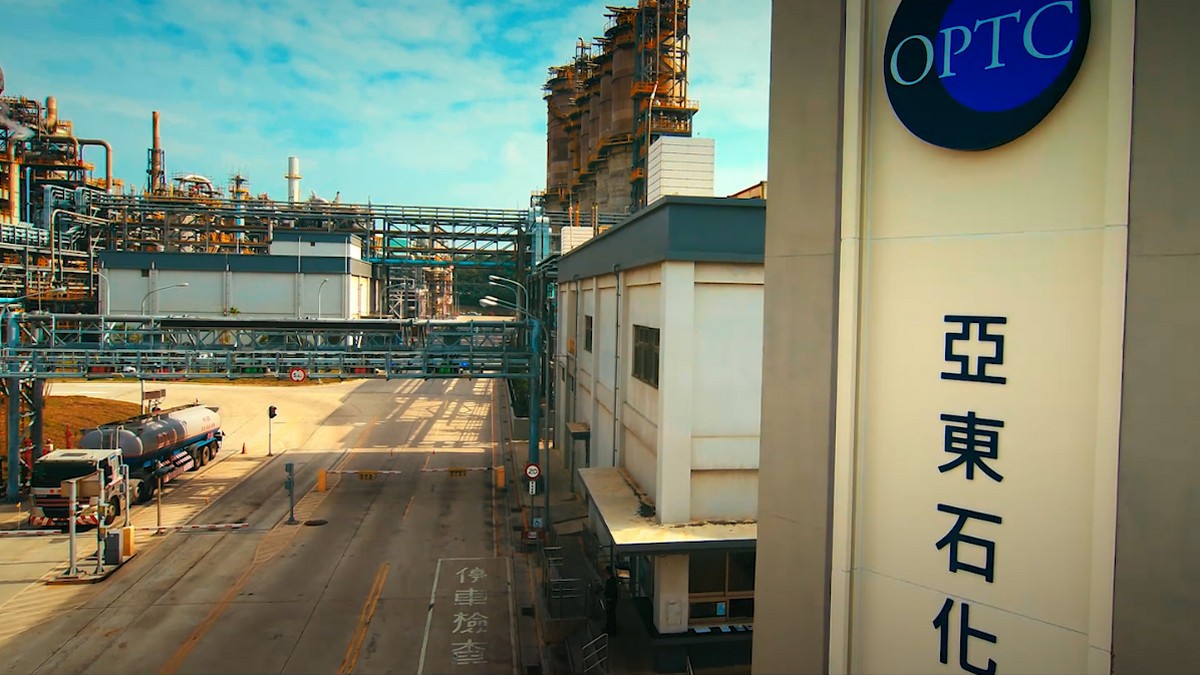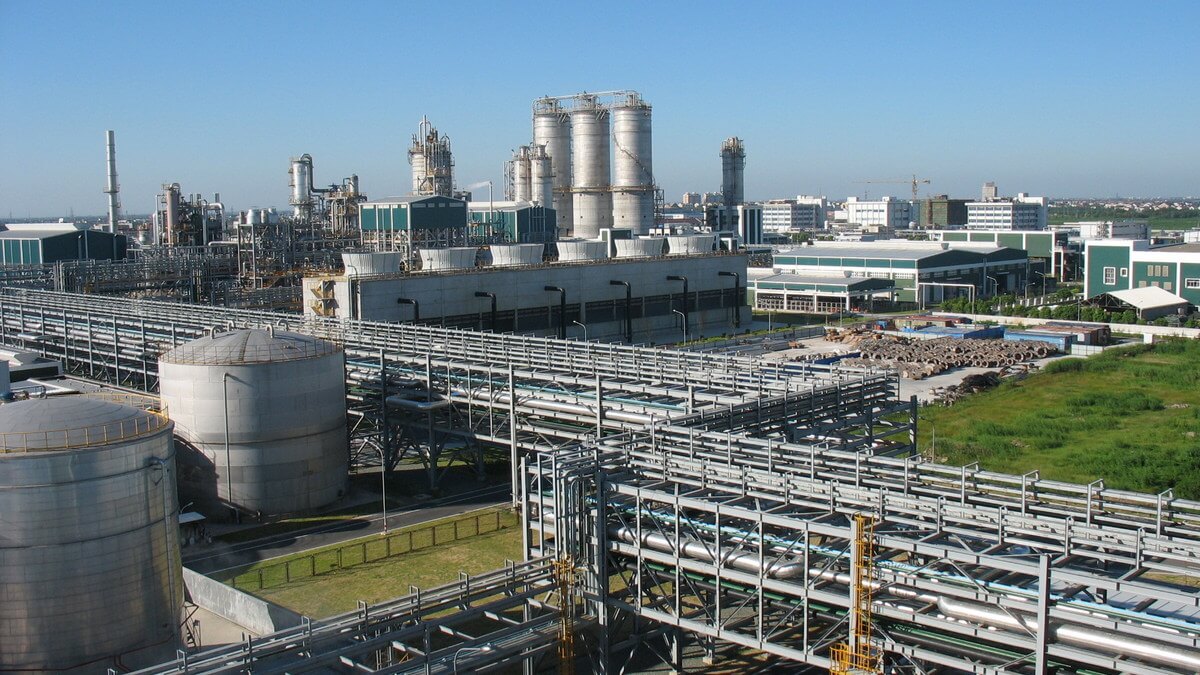Natural Gas and Offshore Wind Power Make Chiahui to be a Powerful Support
Chiahui Power Corporation takes the responsibility in the Group to develop the power industry, and moves forward to energy industry step by step.
Power shortage has always been a nightmare for the industry and a serious blow to the national economic development. Taiwan's electricity consumption has repeatedly reached new records with frequent power rationing; as the demand for electricity grows year by year, and the situation of decommissioning of old power plants and non-commercial operation of nuclear power plants, the power shortage is likely to become increasingly serious. Chiahui Power Corporation (Chiahui) takes the responsibility in the Group to develop the electric power industry, and moves forward to energy industry step by step.

To be the Largest Private Natural Gas Power Plant
Chiahui, founded in 1996, is located in Chiayi County. It mainly cooperates with the government in using clean energy to develop electricity and helps Taiwan get rid of the shadow of power rationing and blackout. Before the amendment of the “The Electricity Act”, the power industry is an oligopolistic market and a chartered industry. The operators were uncertain when the government would open up the market and could not carry out long-term planning. However, in view of the great power shortage crisis in Taiwan, Chiahui still resolutely started to plan the preparation of the second phase expansion project.
At the initial stage of project preparation, the public sector did not have any open policy and legal basis. The team encountered many difficulties and obstacles. Manager Wu, Shuizai recalled that " phase II of Chiahui was originally planned to use 330MW generating units, but due to the unclear power development policy of the government, the project has been in a state of stagnation. Now the minimum output of generating units in the market is more than 500MW, and there is almost no advanced equipment available for 330MW."
In order to carry on the expansion project, the project team actively sought solutions. They immediately increase the capacity design of the equipment in the second phase from 330MW to 500MW ± 10% and coordinated with the TPC system planning department to assist in the impact analysis of the trial system to ensure the feasibility of the plan when they were informed of the amendment of "Technical Essentials for Parallel Connection of Power Plants" and "Detailed Rules for the Implementation of the Environmental Impact Assessment Law" by TPC.
However, this is not the end of the challenge. The subsequent challenge was to pass the environmental impact difference analysis. After responding to the doubts of the EPA (Environmental Protection Administration) review committee one by one, Chiahui finally passed the review in August 2017. At the same time, gas supply consent of CPC Corporation must be obtained for phase II expansion. Manager Wu, Shuizai pointed out that "when the government and TPC have not announced the opening of new power plants, it is difficult to obtain relevant permits or consent documents. Chiahui obtained gas supply consent of CPC Corporation on October 23 of the same year through communication with multiple parties and repeated coordination, becoming the first private power plant to obtain such consent."
However, it is also a big problem to obtain the approval of the parallel system review submission from TPC. Manager Wu, Shuizai explained "technically, if the existing transmission line is used in phase II, the construction cost can be greatly reduced, but the transmission line has the limitation of transmission capacity. The power supply and transmission system is complex and has a huge impact. All technical links from system planning, power supply, dispatching to construction must be overcome one by one. After many discussions and negotiations with TPC, Chiahui phase I and phase II share transmission lines, which saves up to NT$ 300 million of project construction cost. "
Since the project team has fully grasped the power shortage situation in Taiwan, and has been communicating with various units for many years and persuaded the Energy Bureau, TPC and CPC successfully to obtain the license documents required for the construction of the plant, only Chiahui was qualified after the announcement of the case of "500,000 kw natural gas unit power procurement" when TPC once again invited the bidding for private power plants after 10 years. In August 2018, Chiahui exclusively won the bidding case at the base price. The unit capacity of Chiahui phase II is 510 MW, with a total investment of NT$10.5 billion. It is expected that the operation will be started in 2020Q4. At that time, the total capacity of phase I and phase II will reach 1180 MW, becoming the largest private natural gas power plant in Taiwan. It is expected that the annual power generation capacity will exceed 1.7 billion degrees, and more than 450,000 households will be supplied with electricity.
Promoting Taiwan's Sustainable Energy Transformation
In addition to the second phase expansion, Chiahui also has a long-term goal. Among them, Yayu project, which is planned and established in Hsinchu with the total capacity of 1400MW, is expected to be an opportunity for the expansion of power industry in the next stage. "The government is actively promoting the development of renewable energy. In the process of energy transformation, the natural gas plant still shoulders the task of regulating renewable energy. Manager Wu, Shuizai further explained.
At present, the biggest advantage of Yayu has passed the environmental impact assessment, which means that it has the key ticket for the establishment, as long as the environmental assessment is approved. Furthermore, the plant site of Yayu is adjacent to TPC’s Longtan ultra-high voltage substation and CPC’s gas distribution station, which can reduce the construction difficulty. According to Manager Wu, Shuizai 's optimistic analysis, “Taiwan transmits power from south to north and power imbalance still exist. Yayu has absolutely prioritized criteria to build a plant in the north. "All these advantages are expected to bring breakthrough for the Yayu project. In the future, the proportion of natural gas power generation will increase from 34.6% now to 50%. After the establishment of the government's power trading platform, the generated power can be sold directly to users.
Under the trend of global energy transformation, the government of Taiwan has also actively developed green energy, and the Legislative Yuan has passed the "Renewable Energy Development Act ", which has led to a large increase in green power demand. In response to government policy, Chiahui established the Hsinchu wind power project in 2015. It invested in offshore wind power development of the open seas in Hsinchu. The total planned capacity of the wind farm is 448mw which is capable of generating 1.6 billion kilowatt hours of electricity every year. It is estimated that the annual carbon reduction can reach 760,000 tons, providing electricity for 400,000 households, which has great contribution to the environment.
Many people believe that Taiwan's fishing activities will be affected by the installation of offshore wind turbines and the sharing of marine space. However, Manager Wu, Shuizai believes that through the joint efforts of the operators, fishermen and the government, wind power generation will bring a transformation opportunity for the fishing industry. "The green energy project will adhere to the spirit of giving back to the local area and sharing prosperity with the fishing industry, share marine resources with the fishermen and cooperate with industry and school to develop offshore wind power talents."
In 2020, Chiahui will participate in the third stage of block selection and bidding, and plans to complete the construction for operation by 2026. According to the “Renewable Energy Development Act”, in the future, large power users must set up or purchase 10% green power. In other words, Far Eastern Group will need about 400 million kwh of green power every year. Our goal is to generate and use green power by ourselves.” Manager Wu, Shuizai is full of confidence.
The liberalization of power industry is the future trend. Through the opening of power market, not only more private forces are introduced to develop renewable energy, but also the problem of power shortage can be solved quickly. After the biggest amendment to “The Electricity Act” in 50 years in 2016 in Taiwan, Chiahui also actively seeks opportunities for expansion, in addition to expanding the Group's power business, it also hopes to fully charge Taiwan!
Business and Company
News Type
UN SDG
Share
Download
Source
FE Magazine 2020/03







